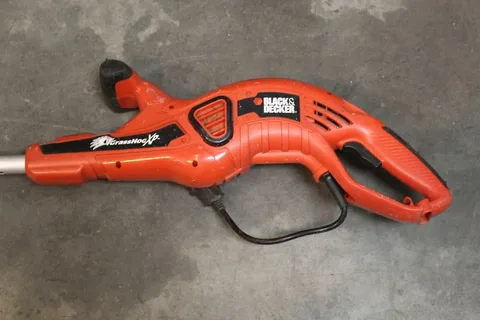Maintaining large outdoor spaces requires the right equipment, and one essential tool for landscaping professionals is a string trimmer. When it comes to string trimmers for commercial use, there are specific features and qualities you need to consider to ensure efficiency, durability, and performance. This article will guide you through what to look for when choosing the ideal string trimmer for your commercial landscaping needs.
Why Choose String Trimmers for Commercial Use?
String trimmers are versatile tools designed for trimming grass and weeds in areas that lawn mowers can’t reach, such as edges, around trees, and near fences. For commercial use, these tools must withstand heavy-duty tasks and prolonged operation. Commercial-grade string trimmers offer more power, robust construction, and longer-lasting components compared to residential models, making them indispensable for landscaping businesses.
Key Factors to Consider When Selecting String Trimmers for Commercial Use
1. Power Source: Gas vs. Electric
Commercial landscapers often debate whether to use gas-powered or electric string trimmers. Gas-powered trimmers generally provide more power and longer run times, ideal for large jobs. However, electric models, especially battery-operated ones, are quieter, lighter, and require less maintenance.
When choosing string trimmers for commercial use, consider your job size, noise regulations, and maintenance preferences before selecting the power source.
2. Engine Size and Power
For commercial applications, engine size is crucial. Larger engines offer more torque and can handle thicker weeds and tougher terrain without bogging down. Most commercial string trimmers come with engines ranging from 25cc to 35cc or higher, providing the power needed for demanding jobs.
3. Durability and Build Quality
Commercial-use string trimmers should be constructed with heavy-duty materials such as metal shafts, reinforced housings, and premium-grade plastics. These features ensure the tool withstands rough handling, falls, and extended operation periods. Look for trimmers designed specifically for professional use, as they are built to last longer than consumer models.
4. Ergonomics and Comfort
Since commercial landscapers use string trimmers for hours on end, ergonomics matter. Features like adjustable handles, padded grips, and balanced weight distribution reduce operator fatigue and improve control. When investing in string trimmers for commercial use, comfort can directly impact productivity and safety.
5. Cutting Swath and Line Compatibility
The cutting swath (width of cut) affects how quickly you can complete a job. Larger cutting swaths cover more ground but might require more power. Also, check if the trimmer uses standard line sizes or proprietary spools. Compatibility with various trimmer lines ensures convenience and cost savings.
Maintenance and Warranty
Commercial string trimmers endure tough conditions, so regular maintenance is essential. Choose models with easy access to air filters, spark plugs, and line replacement systems. Additionally, check the warranty coverage, as commercial-use equipment often comes with more comprehensive warranties reflecting their durability.
Conclusion
Selecting the right string trimmers for commercial use involves considering power, durability, ergonomics, and maintenance. Whether you prefer gas or electric, focusing on these factors ensures you invest in a tool that boosts productivity and withstands the rigors of professional landscaping. With the right trimmer in hand, maintaining commercial properties becomes efficient, reliable, and hassle-free.


